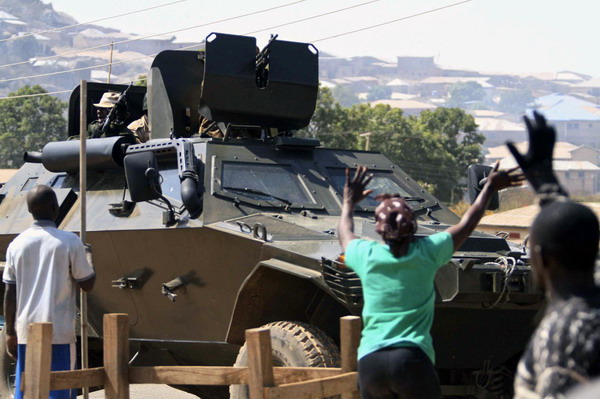Mallaba
JF-Expert Member
- Jan 30, 2008
- 2,554
- 47
UNITED NATIONS - UN Secretary-General Ban Ki-moon on Sunday condemned the deadly violence that broke out in parts of Nigeria in recent days and reportedly killed at least 30 people and injured more than 70 others.
Bombings struck near the city of Jos in the central state of Plateau on Friday, according to media reports. These have been followed by further clashes in the city, which has been the scene of past violence between Christians and Muslims, including earlier this year.
In addition, members of a radical Muslim sect reportedly attacked two churches in the northern state of Borno on Friday, killing several people.
"The Secretary-General condemns these deplorable acts of violence, especially at a time when millions of Nigerians are celebrating religious holidays, and supports efforts by the Nigerian authorities to bring those responsible to justice," his spokesperson said in a statement.
Ban also conveyed his sincere condolences to the families of the victims and to the Government and people of Nigeria.
Bombings struck near the city of Jos in the central state of Plateau on Friday, according to media reports. These have been followed by further clashes in the city, which has been the scene of past violence between Christians and Muslims, including earlier this year.
In addition, members of a radical Muslim sect reportedly attacked two churches in the northern state of Borno on Friday, killing several people.
"The Secretary-General condemns these deplorable acts of violence, especially at a time when millions of Nigerians are celebrating religious holidays, and supports efforts by the Nigerian authorities to bring those responsible to justice," his spokesperson said in a statement.
Ban also conveyed his sincere condolences to the families of the victims and to the Government and people of Nigeria.






